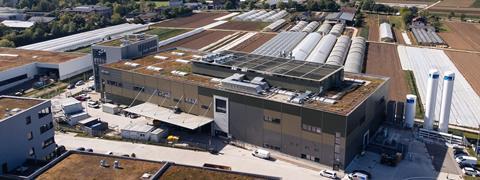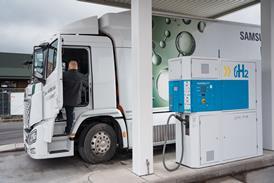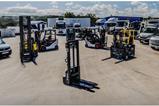Cellcentric, the fuel cell joint venture between Daimler Trucks and Volvo Group, has launched pilot production for fuel cell systems at its Esslingen-Pliensauvorstadt site, marking a significant advancement towards large-scale production of hydrogen fuel cells.

This step follows the development and prototype production phases, transitioning to an industrial-grade production stage. Cellcentric is pioneering Fuel Cell system production on an industrial scale in Europe, aiming for high vertical integration. The goal is to produce complete fuel cell systems from a single source, paving the way for large-scale automotive production.
The next phase involves preparing for Europe’s largest fuel cell production facility in Weilheim, set to commence by the end of the decade. This development supports the prediction that fuel cell-powered long-haul heavy-duty trucks will become a cornerstone of sustainable transportation.
Cellcentric aims to develop, produce, and distribute fuel cell systems across Baden-Wuerttemberg, focusing on achieving the best Total Cost of Ownership (TCO) in the competitive transportation sector. The company plans to cover the entire fuel cell ecosystem, including maintenance and recycling at the end of the product lifecycle.
“Fuel cell technology is a proven solution for CO2-neutral long-distance heavy-duty transportation, but industrial-scale production is key to achieving economies of scale and optimising TCO,” explains Lars Johansson, Chief Commercial Officer and Chief Organisational Officer of Cellcentric. “The opening of our pilot production facility in Esslingen is a blueprint for the next step towards industrialisation and scaling of fuel cell system production at the Weilheim site.”
In May 2024, cellcentric unveiled its NextGen fuel cell system at the ACT Expo in Las Vegas. This smaller, more efficient system is designed for hydrogen-powered long-haul trucks. The BZA150 fuel cell generation, close to series production, has undergone successful field tests with Daimler Truck and Volvo Group. Series production of the NextGen fuel cell system is scheduled to begin at the end of the decade.


















